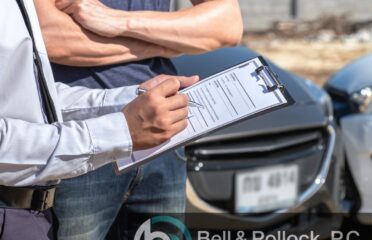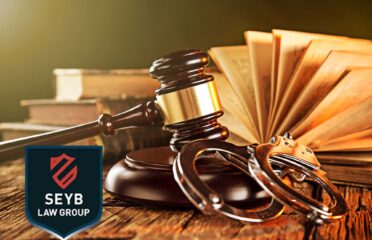Motorcycle accidents can result in severe injuries, substantial financial burdens, and emotional trauma for victims. In Bradenton, specialized motorcycle accident attorneys are crucial in helping victims navigate the complexities of personal injury law to secure the compensation they deserve. This blog will explore the comprehensive process that Bradenton motorcycle accident attorneys follow during case evaluation and the strategic approaches they employ to build strong cases for their clients.
Understanding the Role of a Motorcycle Accident Attorney
The Importance of Legal Representation
Motorcycle accidents often lead to catastrophic injuries due to the lack of protective barriers between the rider and the road. As a result, victims may face significant medical expenses, lost wages, and long-term rehabilitation costs. An experienced motorcycle accident attorney in Bradenton can help victims:
- Navigate Legal Complexities: Understand the nuances of personal injury law and insurance claims.
- Maximize Compensation: Ensure that all avenues for compensation are explored, including medical expenses, lost income, pain and suffering, and more.
- Provide Emotional Support: Offer guidance and support throughout the legal process, allowing victims to focus on recovery.
Case Evaluation: The Foundation of a Strong Legal Strategy
Case evaluation is the initial and one of the most critical stages in the legal process. It involves a thorough assessment of the accident, injuries, and potential damages to determine the viability of the case and develop a strategic plan.
Initial Consultation and Case Assessment
Gathering Basic Information
The first step in case evaluation is the initial consultation, during which the attorney gathers essential information about the accident. This typically includes:
- Accident Details: Date, time, and location of the accident, weather conditions, and traffic signals.
- Injury Information: Nature and extent of injuries sustained, medical treatment received, and long-term prognosis.
- Witnesses: Contact information and statements from witnesses present at the scene.
- Police Reports: Official police reports documenting the accident and any citations issued.
Client Interview
A detailed client interview is conducted to gain a comprehensive understanding of the accident and its impact on the victim’s life. During this interview, the attorney will:
- Listen to the Client’s Account: Hear the victim’s version of events to identify key details and discrepancies.
- Assess Immediate and Long-Term Effects: Understand the immediate and long-term physical, emotional, and financial impacts of the accident.
- Determine Client Goals: Clarify the client’s goals and expectations for the legal process and potential settlement.
Evidence Collection and Investigation
Accident Scene Investigation
A thorough investigation of the accident scene is crucial for building a strong case. This involves:
- Photographing the Scene: Capturing images of the accident scene, vehicle positions, road conditions, and any visible injuries.
- Collecting Physical Evidence: Gathering debris, skid marks, and other physical evidence that may help reconstruct the accident.
- Reviewing Surveillance Footage: Obtaining surveillance footage from nearby businesses or traffic cameras that may have captured the accident.
Medical Records and Expert Testimony
Detailed medical records and expert testimony are vital in demonstrating the extent of injuries and their impact on the victim’s life. Attorneys will:
- Obtain Medical Records: Collect comprehensive medical records documenting injuries, treatments, and future care needs.
- Consult Medical Experts: Engage medical experts to provide testimony on the severity of injuries and their long-term implications.
- Evaluate Rehabilitation Needs: Assess the need for ongoing rehabilitation and associated costs.
Witness Statements
Witness statements provide crucial corroboration of the victim’s account and help establish liability. Attorneys will:
- Interview Witnesses: Conduct detailed interviews with witnesses to gather consistent and accurate accounts of the accident.
- Prepare Witnesses for Testimony: Prepare witnesses for depositions and potential trial testimony to ensure they present their statements clearly and confidently.
Analyzing Liability and Damages
Determining Fault
Establishing fault is a critical aspect of any motorcycle accident case. Attorneys will analyze various factors to determine liability, including:
- Traffic Laws: Review relevant traffic laws and determine if any were violated by the parties involved.
- Driver Behavior: Assess the behavior of drivers involved, including speed, attention, and adherence to traffic signals.
- Expert Analysis: Utilize accident reconstruction experts to provide professional opinions on how the accident occurred and who was at fault.
Calculating Damages
Accurate calculation of damages is essential for ensuring fair compensation. This involves:
- Economic Damages: Calculating medical expenses, lost wages, property damage, and other quantifiable financial losses.
- Non-Economic Damages: Assessing non-economic damages such as pain and suffering, emotional distress, and loss of enjoyment of life.
- Punitive Damages: Considering punitive damages if the at-fault party’s behavior was particularly reckless or egregious.
Developing a Legal Strategy
Pre-Litigation Strategy
Before filing a lawsuit, attorneys often attempt to resolve the case through negotiation and settlement. This pre-litigation strategy includes:
- Demand Letters: Sending detailed demand letters to the at-fault party’s insurance company outlining the victim’s claims and requested compensation.
- Negotiations: Engaging in negotiations with insurance adjusters to reach a fair settlement without the need for litigation.
- Mediation: Participating in mediation sessions with a neutral third party to facilitate settlement discussions and achieve a mutually agreeable resolution.
Litigation Strategy
If a fair settlement cannot be reached, the case may proceed to litigation. Developing a robust litigation strategy involves:
- Filing the Lawsuit: Preparing and filing the necessary legal documents to initiate the lawsuit.
- Discovery Process: Engaging in the discovery process to exchange information, gather additional evidence, and depose witnesses.
- Pre-Trial Motions: Filing pre-trial motions to address procedural issues, exclude inadmissible evidence, and strengthen the case.
Trial Preparation
Preparing for trial is an intensive process that requires meticulous attention to detail. This includes:
- Developing a Narrative: Crafting a compelling narrative that clearly explains the accident, injuries, and impact on the victim’s life.
- Selecting Witnesses: Identifying and preparing witnesses who can effectively support the victim’s claims.
- Trial Strategy: Developing a trial strategy that includes opening statements, direct and cross-examinations, and closing arguments.
Case Evaluation Techniques
Strengths and Weaknesses Analysis
A thorough analysis of the strengths and weaknesses of the case is crucial for developing an effective strategy. This involves:
- Identifying Strengths: Highlighting strong evidence, credible witnesses, and favorable expert testimony.
- Addressing Weaknesses: Identifying potential weaknesses, such as conflicting evidence or witness credibility issues, and developing strategies to mitigate them.
Risk Assessment
Assessing the risks associated with the case helps attorneys make informed decisions about settlement and litigation strategies. This includes:
- Evaluating Settlement Offers: Weighing the risks and benefits of accepting a settlement offer versus proceeding to trial.
- Considering Jury Perception: Assessing how a jury might perceive the evidence, witnesses, and overall case narrative.
- Estimating Trial Outcomes: Predicting potential trial outcomes based on similar cases and legal precedents.
Cost-Benefit Analysis
A cost-benefit analysis helps determine the most efficient and effective approach to achieving the client’s goals. This involves:
- Calculating Legal Costs: Estimating the costs associated with litigation, including attorney fees, expert witness fees, and court costs.
- Comparing Settlement and Trial: Comparing the potential settlement amount with the estimated trial award to determine the best course of action.
Negotiation Tactics
Building a Strong Negotiation Position
Building a strong negotiation position involves presenting a compelling case that clearly demonstrates the at-fault party’s liability and the extent of the victim’s damages. This includes:
- Presenting Evidence: Providing clear and convincing evidence to support the victim’s claims.
- Expert Testimony: Utilizing expert testimony to validate the severity of injuries and the need for future medical care.
- Highlighting Damages: Emphasizing the economic and non-economic damages suffered by the victim.
Counteroffers and Responses
Negotiations often involve multiple rounds of offers and counteroffers. Attorneys must be skilled in crafting counteroffers and responding to insurance adjusters’ tactics. This includes:
- Evaluating Offers: Carefully evaluating each offer to determine if it adequately compensates the victim for their losses.
- Crafting Counteroffers: Crafting counteroffers that reflect the true value of the claim and demonstrate a willingness to negotiate.
- Maintaining Professionalism: Maintaining a professional and respectful demeanor throughout the negotiation process to facilitate productive discussions.
Mediation and Settlement Conferences
Mediation and settlement conferences provide opportunities to resolve the case without going to trial. These processes involve:
- Mediation Sessions: Participating in mediation sessions with a neutral third-party mediator who facilitates discussions and helps the parties reach an agreement.
- Settlement Conferences: Attending settlement conferences where both parties present their cases to a judge or neutral evaluator who provides feedback and encourages settlement.
Trial Strategies
Jury Selection
Selecting a fair and impartial jury is critical for achieving a favorable trial outcome. This involves:
- Voir Dire: Conducting voir dire, a process of questioning potential jurors to assess their suitability for the case.
- Identifying Bias: Identifying and excluding jurors who may have biases or preconceived notions that could affect their judgment.
- Building Rapport: Building rapport with the jury by presenting a clear and compelling narrative that resonates with them.
Presentation of Evidence
Presenting evidence effectively is essential for persuading the jury. This includes:
- Direct Examination: Conducting direct examinations of witnesses to elicit clear and credible testimony.
- Cross-Examination: Performing cross-examinations to challenge the credibility of opposing witnesses and highlight inconsistencies.
- Visual Aids: Utilizing visual aids, such as photographs, diagrams, and videos, to enhance the presentation of evidence.
Closing Arguments
Closing arguments provide the final opportunity to persuade the jury. This involves:
- Summarizing the Case: Summarizing the key points of the case and reinforcing the evidence that supports the victim’s claims.
- Emotional Appeal: Make an emotional appeal to the jury by highlighting the impact of the accident on the victim’s life.
- Clear Call to Action: Provide a clear call to action by asking the jury to find in favor of the victim and award fair compensation.
Final Thoughts
Navigating the legal process after a motorcycle accident in Bradenton requires expertise, strategic planning, and a thorough understanding of personal injury law. Bradenton motorcycle accident attorneys play a vital role in evaluating cases, gathering evidence, determining liability, and developing effective strategies to secure fair compensation for their clients. From the initial consultation to trial preparation, these attorneys are dedicated to advocating for the rights of motorcycle accident victims and ensuring they receive the justice they deserve. By leveraging their legal knowledge and experience, Bradenton motorcycle accident attorneys help victims rebuild their lives and move forward after a traumatic event. If you or a loved one has been involved in a motorcycle accident, seeking the assistance of a skilled attorney can make all the difference in achieving a favorable outcome.











